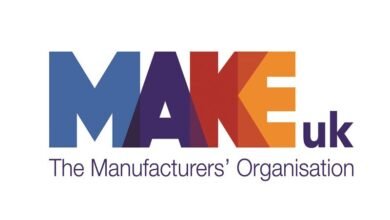Why ESG Investing Might Never Recover

The ESG brand probably has its best days behind it.
The ESG brand probably has its best days behind it.
Following a three-year craze for investment products focused on environmental, social and corporate-governance concerns, the percentage of newly created funds in the U.S. and Europe with ESG in their name has fallen from a peak of 8.3% to just 3.3%, according to an analysis of quarterly data by Morningstar Direct.
Premium benefits
35+ Premium articles every day
Specially curated Newsletters every day
Access to 15+ Print edition articles every day
Subscriber only webinar by specialist journalists
E Paper, Archives, select The Wall Street Journal & The Economist articles
Access to Subscriber only specials : Infographics I Podcasts
Unlock 35+ well researched
premium articles every day
Access to global insights with
100+ exclusive articles from
international publications
Get complimentary access to
3+ investment based apps
TRENDLYNE
Get One Month GuruQ plan at Rs 1
FINOLOGY
Free finology subscription for 1 month.
SMALLCASE
20% off on all smallcases
5+ subscriber only newsletters
specially curated by the experts
Free access to e-paper and
WhatsApp updates
Following a three-year craze for investment products focused on environmental, social and corporate-governance concerns, the percentage of newly created funds in the U.S. and Europe with ESG in their name has fallen from a peak of 8.3% to just 3.3%, according to an analysis of quarterly data by Morningstar Direct.
Likewise, online searches for “ESG investing” have plummeted back to mid-2019 levels, according to Google Trends. Mentions of the term in company analyst calls have dropped 59% from their quarterly peak in 2022, FactSet data suggest.
One explanation is the collapse of the clean-energy stocks most readily associated with the ESG movement. Flagging growth in electric-vehicle sales has hit sector behemoth Tesla. The S&P Global Clean Energy index, which lists solar-panel maker First Solar and Danish wind-turbine giant Vestas among its top constituents, has lost 31% since the start of 2023 as renewable-energy projects have been shelved. That compares with returns of 27% for global stocks.
The rise of ESG investing between 2019 and 2022 coincided with a surge in clean-tech valuations, and now the reverse is happening. Investors have pulled $2.2 billion from funds dedicated to decarbonization since the start of the year, according to EPFR, and the outflows are getting larger every week.
There is a risk that ESG was an investment fad rather than a financial revolution extending across all industries.
The term was the product of an uneasy three-way alliance. On one side were ethically driven investors, who are particularly widespread in Scandinavia and include pension funds, universities and religious organizations united in wanting to shun contentious firms. On another were institutions such as the United Nations that aimed to channel money to industries that benefit society. Finally, there were investors who wanted to profit from the green revolution.
Asset managers jumped at the chance to cater to all three simultaneously. ESG allowed them to differentiate their products, revitalize the case for active management and, at a time of declining fees, charge more for stock screens that often lead to only small changes in allocations. Among U.S. equity funds, ESG strategies have an asset-weighted average fee of 0.52%, compared with 0.33% overall, Morningstar Direct data shows.
But the confusion of motivations made for contradictions and a lot of doublespeak. Neither ethical objectives nor bets on decarbonization square logically with fund managers’ claims that ESG is a broad path to higher, safer returns.
Yes, an ESG focus can help active managers account for risks such as a regulatory backlash or governance blow up, which in some cases might be highlighted by new company disclosures. This month the European Union cleared the way toward requiring firms to better report and address sustainability impacts.
However, the assumption that integrating ESG criteria into their screening will lead to better stock picking seems flawed. The very popularity of ESG makes it unlikely that the market is underappreciating the risks. The rush of money into firms like Vestas, whose stock hit a price-to-earnings ratio of 534 in 2022, illustrates the risk that shares with high sustainability scores can get too expensive, leading to lower returns.
Ethical investors might be fine with this, but that just shifts the focus to what counts as ethical. Tellingly, interest in ESG has dropped more in the U.S., where the politicization of EVs and culture wars surrounding Bud Light beer show how easily corporations can become ideological battlegrounds.
ESG ratings aren’t much help in navigating these issues. Different providers give wildly different scores to the same companies, even within the specific “E,” “S” and “G” factors, according to a February paper by the Leibniz Institute SAFE. Researchers also found that environmental concerns tend to explain most of the overall score.
This is another hint that the ultimate driver of the pandemic-era ESG craze might have been a hunger for thematic investment. It has since found better sources of sustenance, as demonstrated by the breakneck growth of firms such as Global X, which is delivering increasingly granular offerings such as tracker funds for electric batteries, cloud computing and aging populations.
Buyers of these products can be fickle and jump to the next theme—often too quickly for their own good, a Morningstar analysis showed last November. It is possible that the overly generic ESG brand will never recover its appeal, with the different parts of it eventually rebranded to suit their specific client bases. BlackRock, the world’s largest asset manager, has already dropped it and is now emphasizing transition themes over ethical stewardship of companies.
Sustainable investing isn’t going anywhere. But a broad tent covering too many interests serves none of them well.
Write to Jon Sindreu at jon.sindreu@wsj.com
Source link





